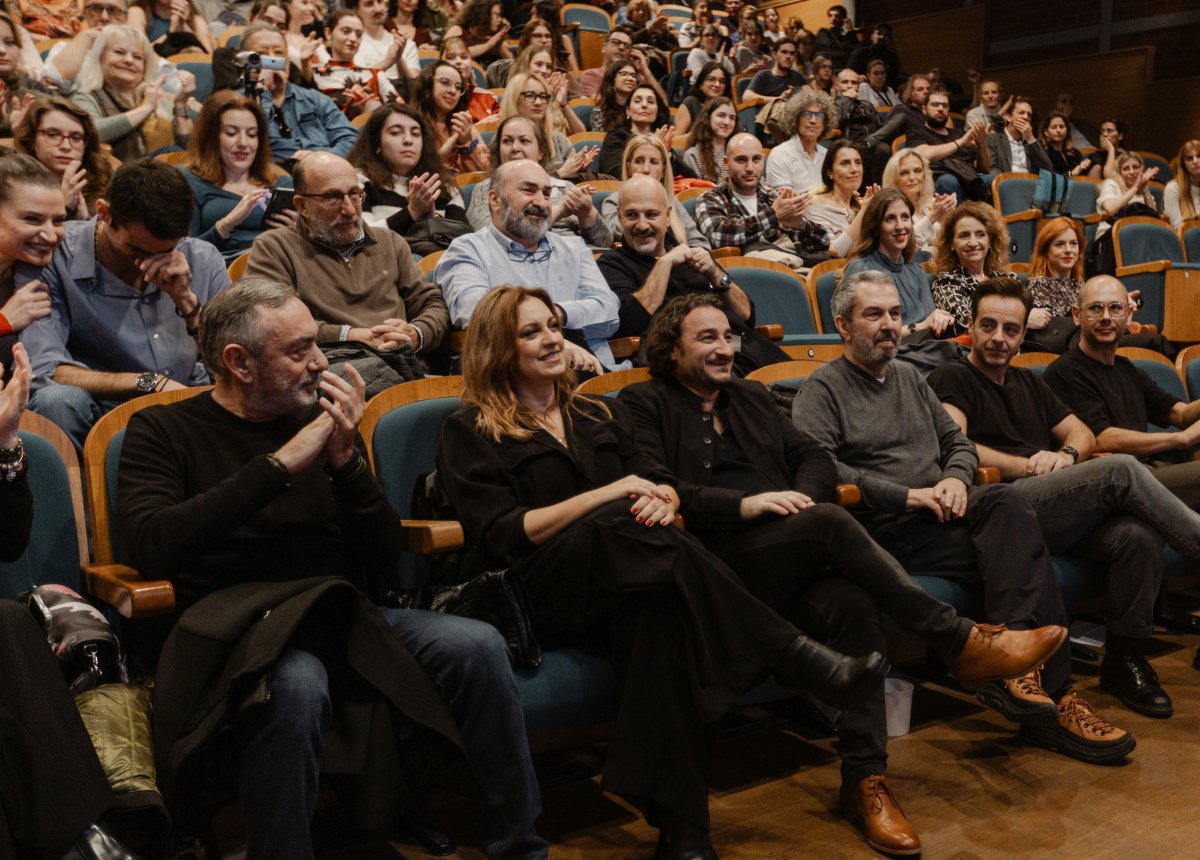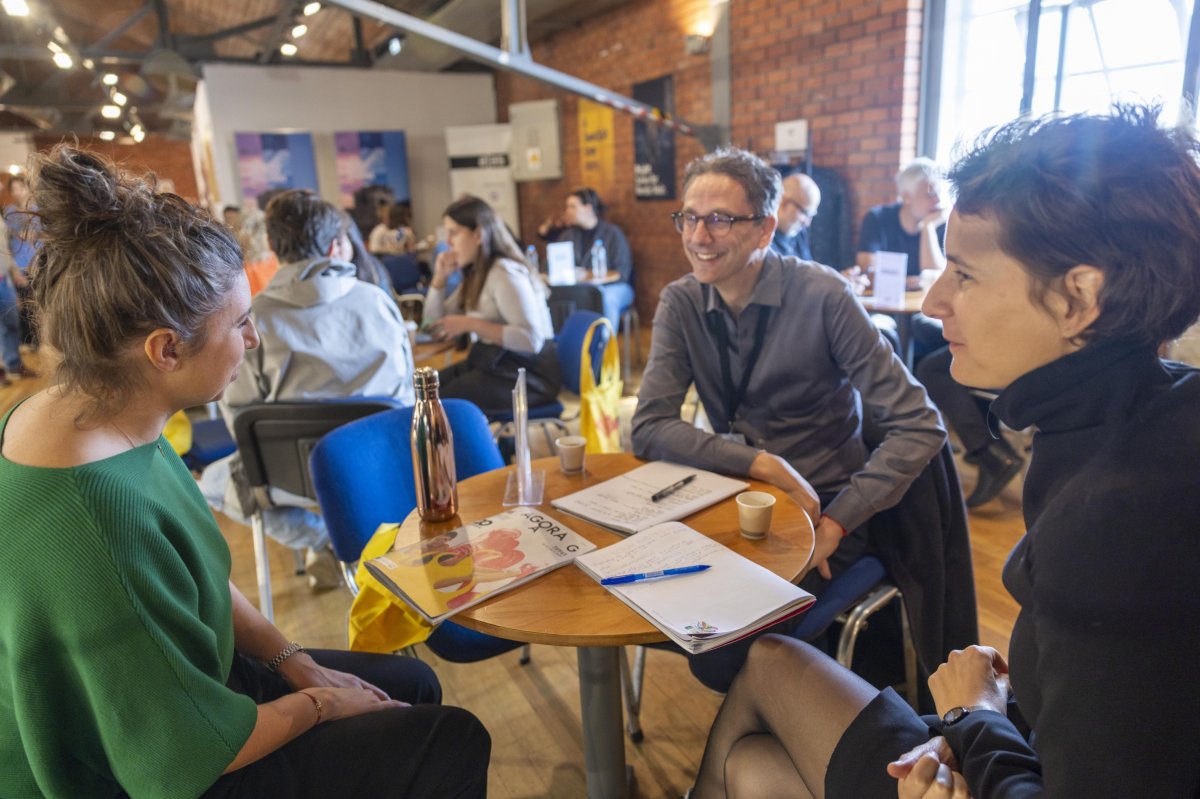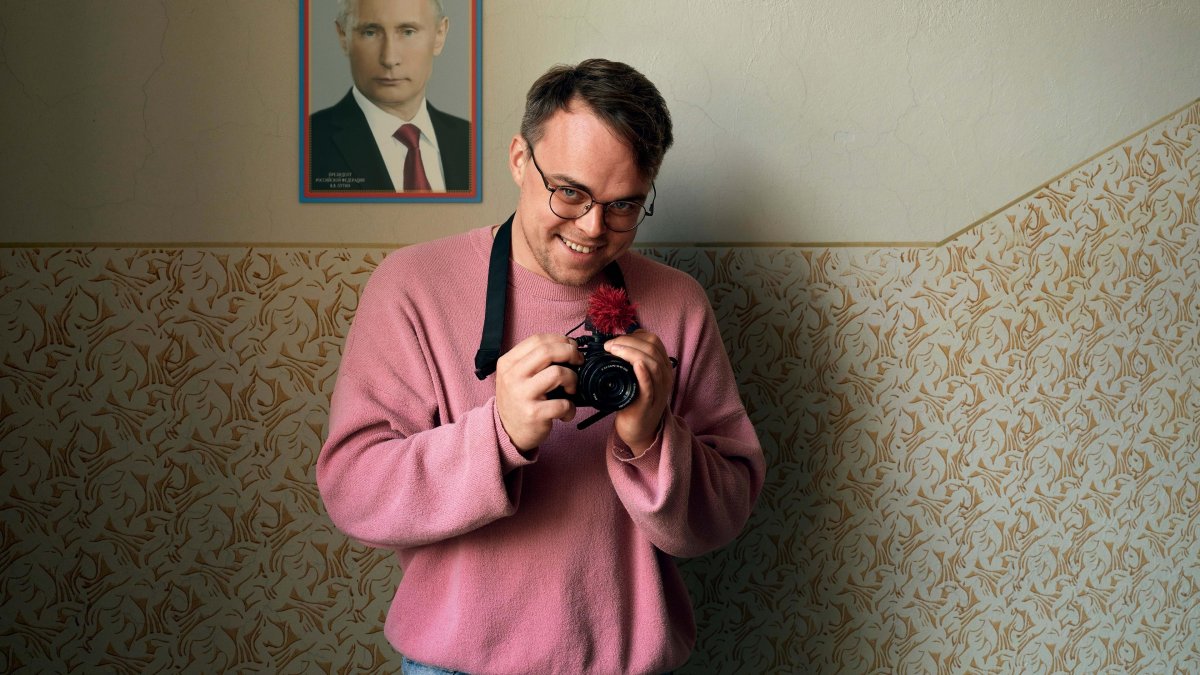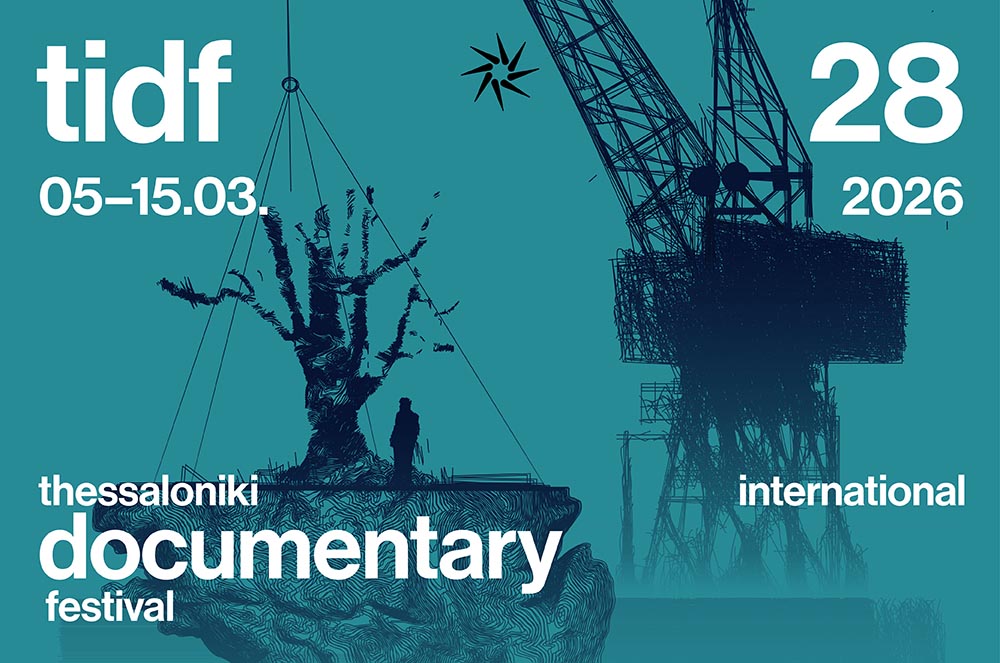The special screening of Sotiris Tsafoulias’ television series Rififi took place on Monday, November 3rd at the packed Frida Liappa theater, with the Chief of Corporate Communications, Sustainability & Channel Productions of OTE Group, Dimitris Michalakis, in attendance, along with the Content Director at Cosmote TV, Faye Tsitsipi, the director Sotiris Tsafoulias, the series’ scriptwriters Vassilis Risvas and Dimitra Sakali, the actress Evangelia Moumouri, and actors Christos Chatzipanagiotis, Vassilis Haralambopoulos, Prometheus Aleiferpoulos, Achilleas Zervas.
For yet another year, the Thessaloniki International Film Festival includes television series in its official program, introducing new productions. Through this dynamic section, the Festival showcases the most compelling voices and stories that are shaping the world of television storytelling today. The screening of Rififi is part of the Series Special Screenings section, which features episodes from seven series in total.
Initially, the Festival’s Artistic Director, Orestis Andreadakis, took the floor: “Welcome to another screening of COSMOTE TV, our grand sponsor. Every year, during the November and March Festivals, we showcase a series, film, or documentary produced by the Festival’s grand sponsor. Once again, I’d like to extend my sincere gratitude to them. The series we are about to watch is based on one of the most infamous heists ever committed in Europe: the notorious ‘Rififi,’ in which the robbers dug a tunnel underneath a bank, but were never caught.”
Immediately afterwards, Faye Tsitsipi, the Content Director at Cosmote TV, took the stage: “Thank you so much for having us. As always, and as tradition dictates, we come together to celebrate the premiere of our new series. We are here so that you can be the first to watch the new fiction series, Rififi, produced by COSMOTE TV - COSMOTE TELEKOM and directed by Sotiris Tsafoulias. We are very excited and proud of this series. We are also delighted that so many of the series' contributors have honored us with their presence. They will be watching it for the first time alongside you. The two stories we are about to see are based on real events, though they are enhanced with some fictional elements added by the series’ scriptwriters, Vassilis Risvas and Dimitra Sakali. One is the well-known heist that took place in Athens in the 1990s. I won't reveal the other one, but you'll soon be seeing it on the big screen. I would like to thank everyone involved in the series, including the contributors, our partners, Tanweer Productions, Dionyssis Samiotis, as well as Panos Petropoulos, among others. I hope you enjoy the series, which will be released in mid-December featuring a total of six episodes," he concluded.
The baton was then passed to Sotiris Tsafoulais: “I’d also like to extend my own welcome. Many thanks to the Festival for the invitation; Thessaloniki always brings me luck. Rififi is the fifth series I’ve had the pleasure of presenting before you at the Festival’s venues, and I am delighted. First and foremost, I would like to thank the person who created COSMOTE TV. At a time when there were no productions quite like Rififi, television had ceased investing in fiction and kept recycling cheap, low-quality, sensational programs. This person made it possible for us to produce high-quality fiction; his name is Dimitris Michalakis. He placed his trust in us and equipped us with the necessary tools which allowed us to carve out a new path in television. I sincerely thank him for his courage, which also inspired others at other networks to follow his example,” he disclosed.
At this point, Sotiris Tsafoulias added: “I'd like to thank all the actors, and especially those joining us here today: Evangelia Moumouri, Christos Chatzipanagiotis, Achilleas Zervas, Prometheus Aleiferopoulos and my dear Vassilis Haralambopoulos, who is making his return to the small screen after years of absence, while honoring me with his talent and friendship. And just to give you a heads-up; Rififi is nothing like the highly commercially successful series, La casa de papel. The essence of the story is indeed the heist, yet at the core of the series lies the second story, which shook Greece and will be unveiled in the final episodes. This storyline adds an emotional and human dimension to the series. Today, murders and heists are common themes in television, so neither the writers nor I were particularly preoccupied with these themes themselves. We were more intrigued by the question of who commits these crimes and why. Everything starts with a need, a love, a pain. Fiction, therefore, came into Rififi to fill the gaps in our knowledge, the identities of the perpetrators, and the motives behind their actions. The events of the heist are depicted exactly as they happened. My parting words of thanks for tonight are dedicated to my biggest supporter, my cinematographer Claudio Bolivar, and to our producers, Dionyssis Samiotis and Panos Petropoulos, who, after 17 Threads, chose to collaborate with us again,” he concluded
After the screening, a Q&A with the contributors of the series followed.
On the question of why they selected actors with a background in comedy, Sotiris Tsafoulias said: “Casting comedians in a drama series works because comedy carries elements of tragedy: the two are intricately intertwined, as they are in life. After all, it is not uncommon to laugh while recounting an unpleasant incident or to be overcome with emotion while recounting a joyful occurrence. In Rififi, we attempted to maintain the right balance of emotions so that there would be an equilibrium.”
As for why villains tend to be so beloved by the audience, Sotriris Tsafoulias explained: “I often say that as a nation we always side with Antigone and never with Creon. We support values rather than principles, because principles change. Today's rules are ever-changing, and what is now legal may be considered illegal tomorrow. We stand by the values of love, friendship, or revenge, and we come to appreciate the extrajudicial solutions that are also found in ancient tragedies such as The Oresteia. I try to introduce characters who are likable, because I don't like didacticism: I want the audience to draw their own conclusions. If I present a character as irrevocably evil from the get-go, I have already taken a stance. My role is to present my own conundrum so we may share it; I'm not presenting a viewpoint for you to agree or disagree with. I try to maintain objectivity, so when I present a criminal as likable, I also present his crimes in a very realistic way. I don't hide their brutality, precisely so as not to take any particular side.” Immediately afterwards, Evangelia Moumouri added some observations: "In order to understand a character, you must justify their actions. A villain is not born evil. In the maternity ward, every child is filled with God's joy. Being labeled as ‘evil’ later on is something invisible to them. No villain ever thinks of themselves as such."
On what difficulties they encountered while portraying their roles, Evangelia Moumouri divulged: “I got a call from Sotiris a year and a half ago. I could hardly believe it was him. Working with a wonderful script and such an open, collaborative production made everything feel effortless. Though, I revisited the 1990s in my mind, picking at some of my own personal wounds, but beyond that everything else was pretty straightforward.” In turn, Vassilis Haralambopoulos expressed: “Although I constantly appear in television reruns, it has been many years since I last acted on television. It's been nearly 14 years since my last appearance. I began to feel envious of some of the stuff I was seeing, a lot of which was by Sotiris. We agreed that, at some point, we should work together. Like Evangelia, I too took his call and with great pleasure, told him that I would like to work with him. I couldn't imagine a better reason to come back to television than working with Sotiris, who is the pillar of the series, and the rest of the excellent cast and crew. Besides, television isn't exactly what I intended to pursue. I wanted television with cinematic elements. I really enjoyed the experience we shared - the production conditions and the lovely people I met. For me, the biggest challenge was not just playing the part; I wanted to live it, to feel it fully,” he noted.
At this moment, Christos Chatzipanagiotis pointed out: “We are very happy about today's screening - it was also our first time watching it. From the moment Sotiris approached me and I read the amazing script, I accepted immediately. The next morning, I woke up in what felt like a small nightmare, as I grapple with severe claustrophobia, and the shoot required us to spend time in underground spaces and tunnels. On the last shot, on the final day, I had a minor panic attack. But ultimately, everything turned out fine.” Next, Achilleas Zervas took the floor: “I was very touched. My role didn't really exist. I went to one of Sotiris' classes for fun, thinking it wouldn’t amount to anything. I don't know what exactly happened in that class, but I ended up with a role in the series. I never imagined I'd be in front of such a large audience, let alone work with such incredible actors. The script was the best one I've read to date. I'm glad Sotiris came into my life: for a kid with a stutter like me, opportunities aren't easy to come by in Greece. When I first saw my role, I couldn't believe it. For me, being in this series is an immense honor,” Achilleas Zervas stressed.
As for the set design, Sotiris Tsafoulias remarked: “It was a real challenge. It’s easier to recreate Athens in 1900 or even 1800, than in 1990. Everything was different then; the sidewalks, the traffic lights. We had to be very careful about how we approached buses and cars, but also about the overall aesthetic. This was the series’ greatest challenge: to stay true to the spirit of the period it was set in. Many of the sets were built from scratch; and the production company deserves many congratulations for that.” Upon reflecting on the notion of inclusion, the series’ director went on to say: “When we wish for abundance, we think of material possessions, but the true meaning lies in not envying one's neighbor. Even if someone ignores the meaning of a word, it does not lose its power. The world belongs to no one: the point is to act with humanity and to be loving,” he concluded















